Karachi – Afghan Ismaili Shia Community – Garden Jamatkhana
Audio Stories
Shukar Ullah – Afghanistan
Shukar Ullah, 27, is enrolled in cooking classes at a vocational training center in Karachi. The center specifically caters to Afghan displaced individuals aiming to build a sustainable livelihood. Meanwhile, his 17-year-old cousin, who resides with him, attends computer classes during the day and works at a juice bar in the evenings, earning a monthly salary below Pakistan's minimum wage due to the lack of a work permit or Proof of Registration (PoR) card, making it impossible to file a complaint against this inhumane work conditions and poor wages.
Malika – Afghanistan
Malika's family lives in a cramped one-bedroom area within a larger three-bedroom apartment, sharing the space with two other families. The harsh reality of the Afghan displaced community unfolds in a 1250-square-foot, sparsely furnished apartment accommodating an average of 15 people. In one room, five individuals share an attached bathroom and a communal kitchen. Previously, Malika ran a vocational center for women in Kabul, Afghanistan. She is an advocate of women empowerment and their financial independence.
Hameedullah – Afghanistan
In Afghanistan, Hameedullah, a 50-year-old member of a persecuted religious minority, faced immense challenges in securing economic opportunities. Being a father to two young girls, his worries about their safety and well-being compounded his daily anxieties. During their one-year ordeal under the Taliban regime, the community endured threats of forced conversions, enforced disappearances, and forced displacement, adding an extra layer of fear and uncertainty to Hameedullah's struggles.
Photo Stories
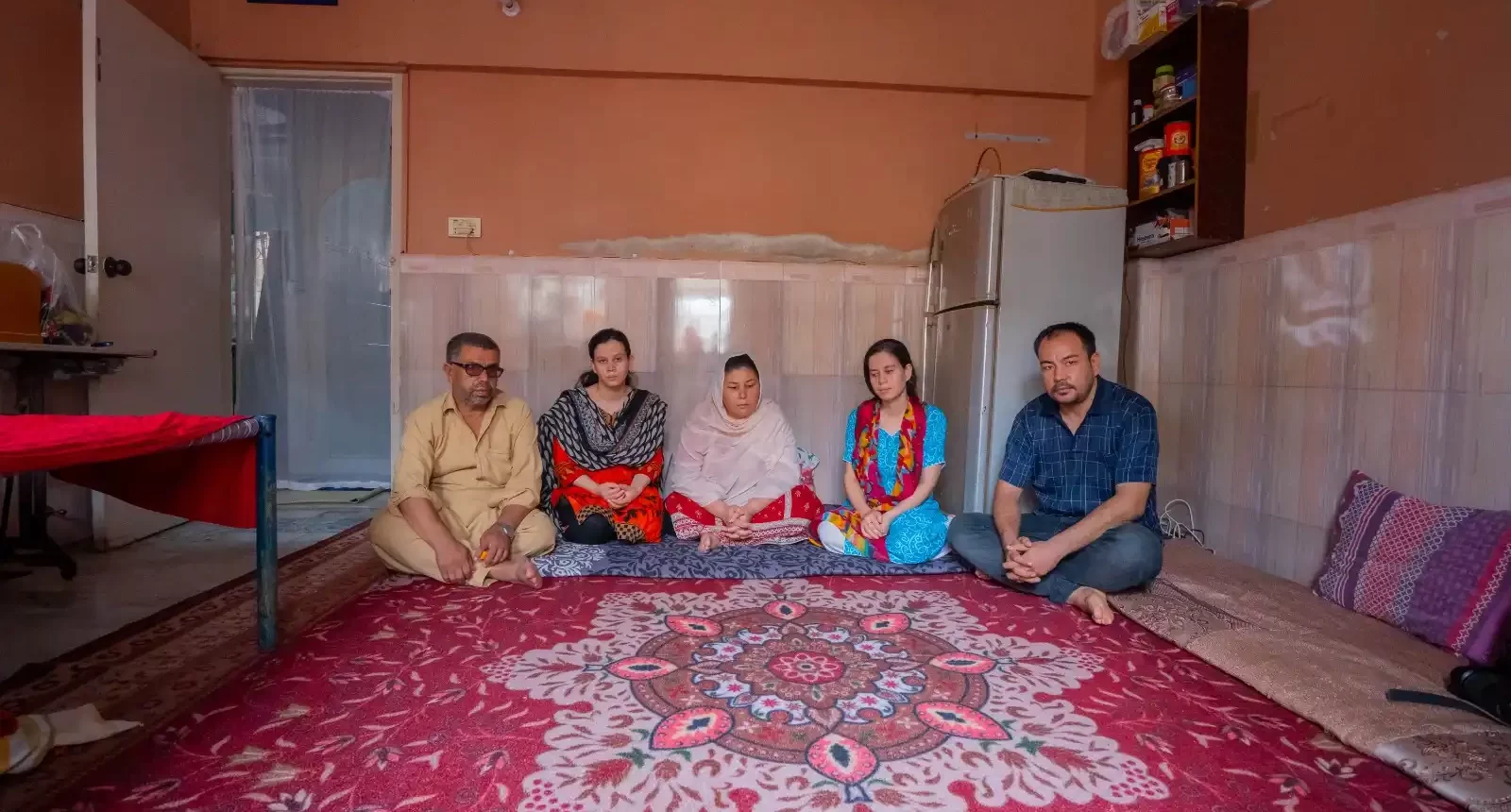 Hameedullah and Malika's family resides in a one-bedroom space within a three-bedroom apartment shared with two other families. Each family pays approximately PKR 30,000 to PKR 35,000 for a single bed accommodation. The kitchen and living area serve as communal spaces for all the families sharing the apartment.
Hameedullah and Malika's family resides in a one-bedroom space within a three-bedroom apartment shared with two other families. Each family pays approximately PKR 30,000 to PKR 35,000 for a single bed accommodation. The kitchen and living area serve as communal spaces for all the families sharing the apartment.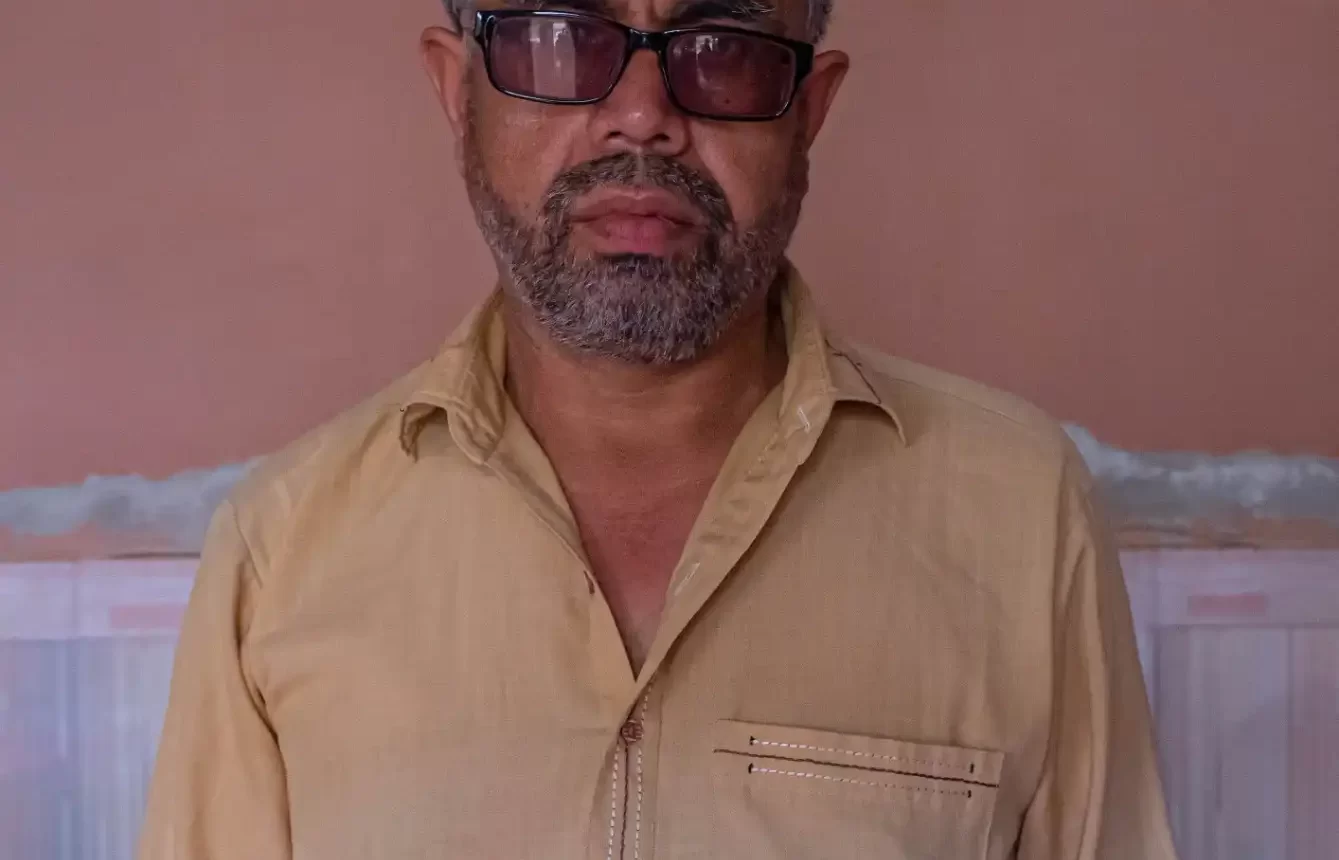 Hameedullah and his family journeyed from Kabul, Afghanistan, to Pakistan nearly a year ago. They were part of a group of 72 individuals from the Ismaili Shia community who made the arduous journey together. Due to resource constraints, they crossed the border on foot, spanning several days to reach Karachi.
Hameedullah and his family journeyed from Kabul, Afghanistan, to Pakistan nearly a year ago. They were part of a group of 72 individuals from the Ismaili Shia community who made the arduous journey together. Due to resource constraints, they crossed the border on foot, spanning several days to reach Karachi. Approximately 200 Afghan families belonging to the Ismaili Shia community have been living in displacement in Karachi since 2022. The challenges faced by this community are well-documented, as they confront systemic discrimination, harassment, and marginalization in their home country of Kabul. During their one-year ordeal under the Taliban regime, the community endured threats of forced conversions, enforced disappearances, and forced displacement.
Approximately 200 Afghan families belonging to the Ismaili Shia community have been living in displacement in Karachi since 2022. The challenges faced by this community are well-documented, as they confront systemic discrimination, harassment, and marginalization in their home country of Kabul. During their one-year ordeal under the Taliban regime, the community endured threats of forced conversions, enforced disappearances, and forced displacement.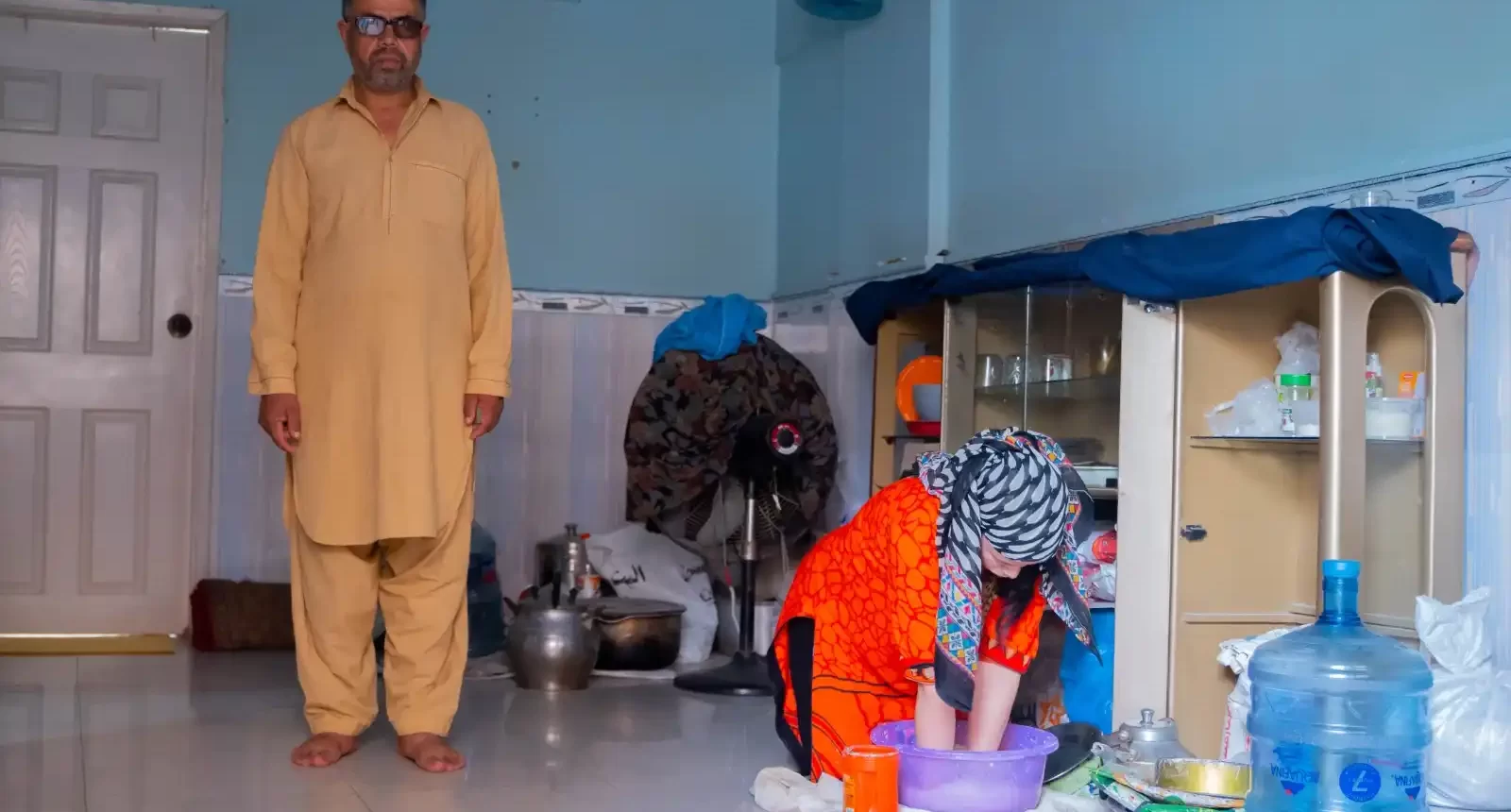 In Afghanistan, Hameedullah, a 50-year-old belonging to a persecuted religious minority community, struggled to find economic opportunities. As a father of two young girls, he was deeply concerned for their safety and security, adding to his daily anxiety.
In Afghanistan, Hameedullah, a 50-year-old belonging to a persecuted religious minority community, struggled to find economic opportunities. As a father of two young girls, he was deeply concerned for their safety and security, adding to his daily anxiety.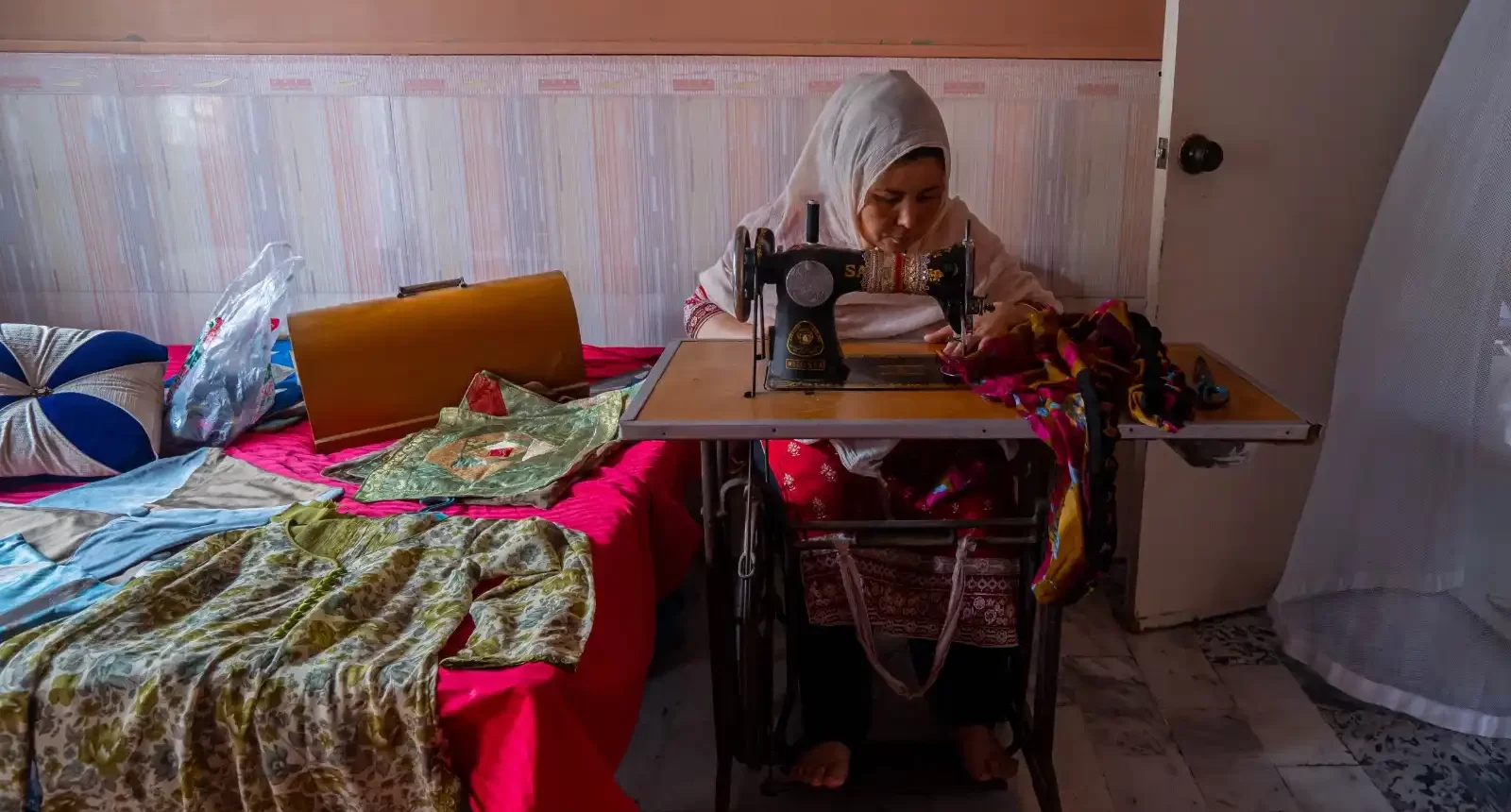 Malika previously operated a vocational center for women in Kabul, Afghanistan. Her strong passion for women's empowerment and financial independence is evident in her work.
Malika previously operated a vocational center for women in Kabul, Afghanistan. Her strong passion for women's empowerment and financial independence is evident in her work.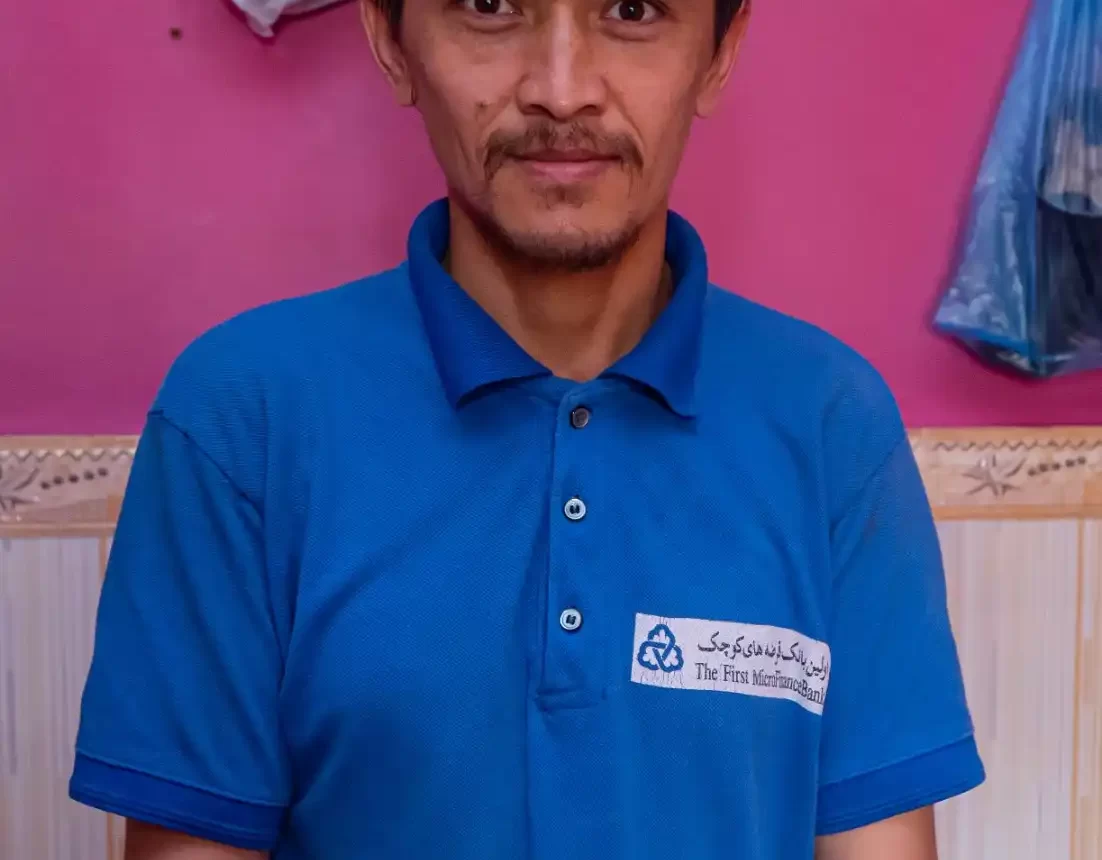 Shukar Ullah, a 27-year-old, is taking cooking classes at a vocational training center in Karachi, facilitated by GIZ, Pakistan. The center is dedicated to Afghan displaced individuals striving to secure a decent livelihood.
Shukar Ullah, a 27-year-old, is taking cooking classes at a vocational training center in Karachi, facilitated by GIZ, Pakistan. The center is dedicated to Afghan displaced individuals striving to secure a decent livelihood.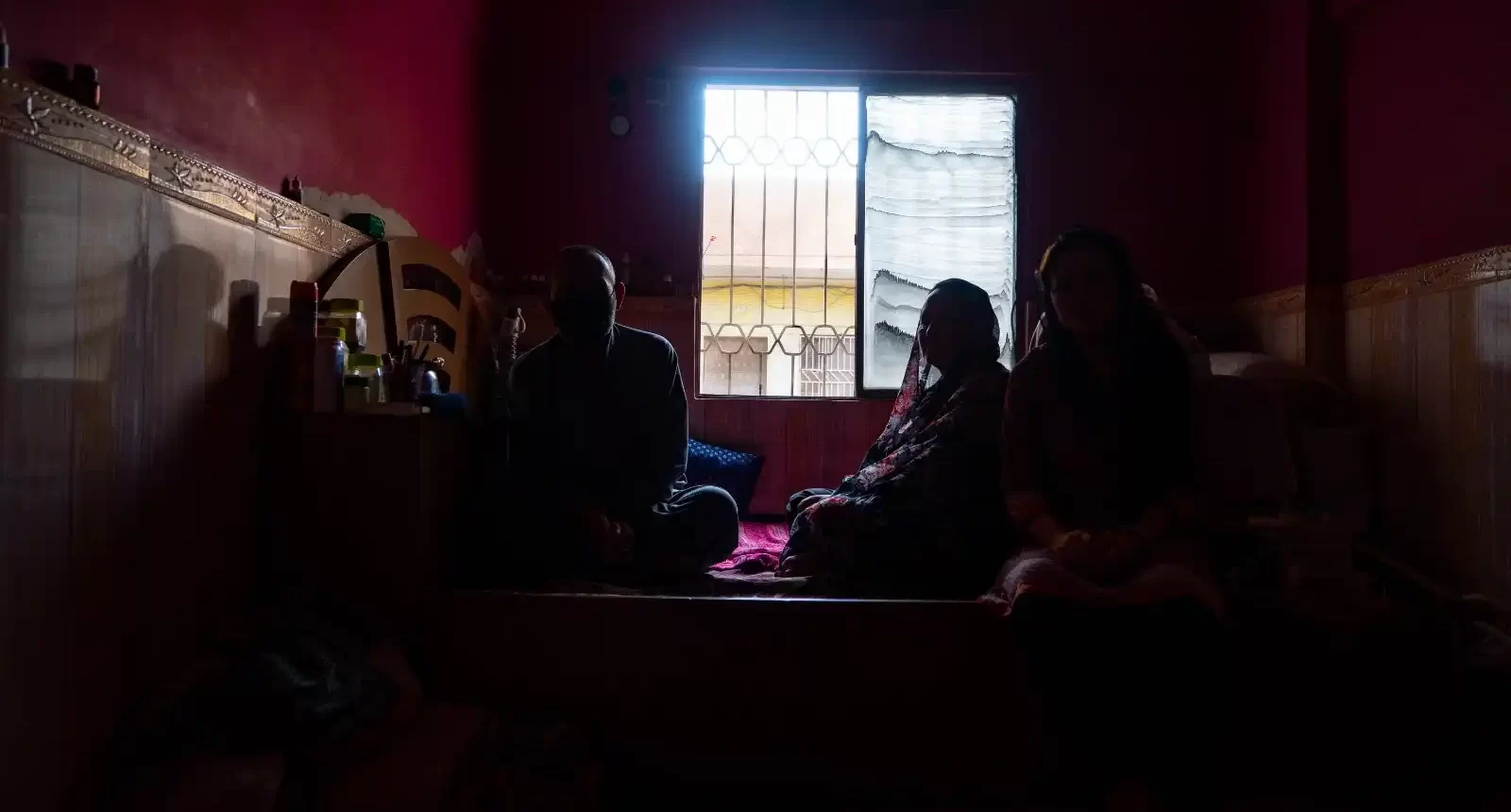 Shukar Ullah lives with his aunt and cousins. One of his cousins, who is only 17, attends computer classes during the day and works at a juice bar in the evenings for a monthly salary of PKR 12,000, which falls below Pakistan's minimum wage. Unfortunately, since he lacks a work permit or Proof of Registration (PoR) card, he cannot lodge a complaint.
Shukar Ullah lives with his aunt and cousins. One of his cousins, who is only 17, attends computer classes during the day and works at a juice bar in the evenings for a monthly salary of PKR 12,000, which falls below Pakistan's minimum wage. Unfortunately, since he lacks a work permit or Proof of Registration (PoR) card, he cannot lodge a complaint.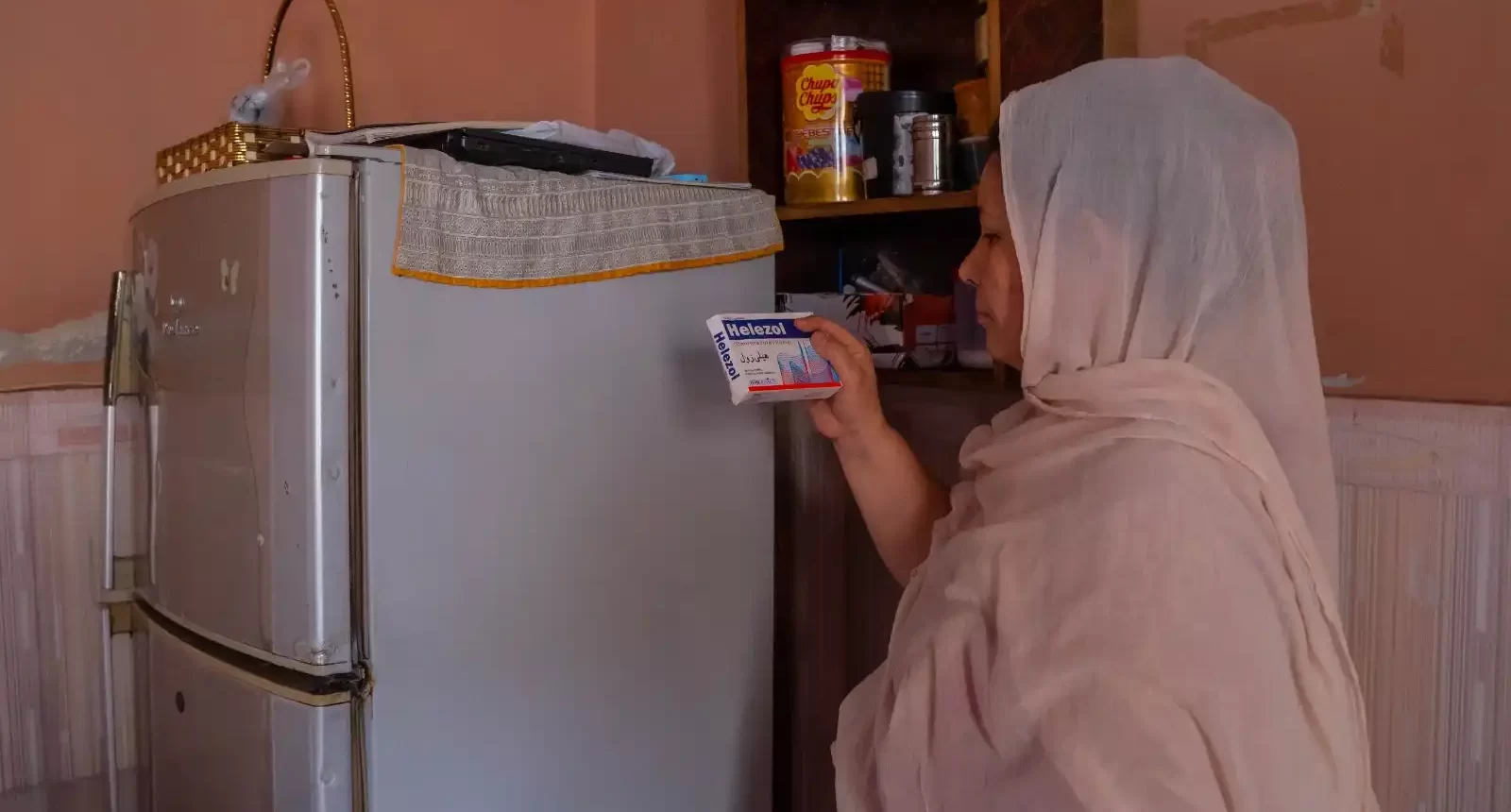 In this household, if someone falls ill, they often resort to home remedies rather than seeking medical attention. Visiting a doctor entails additional expenses, and Afghan displaced people are often charged higher fees, exploiting their inability to protest against this discriminatory practice, given their status as undocumented residents in the country.
In this household, if someone falls ill, they often resort to home remedies rather than seeking medical attention. Visiting a doctor entails additional expenses, and Afghan displaced people are often charged higher fees, exploiting their inability to protest against this discriminatory practice, given their status as undocumented residents in the country.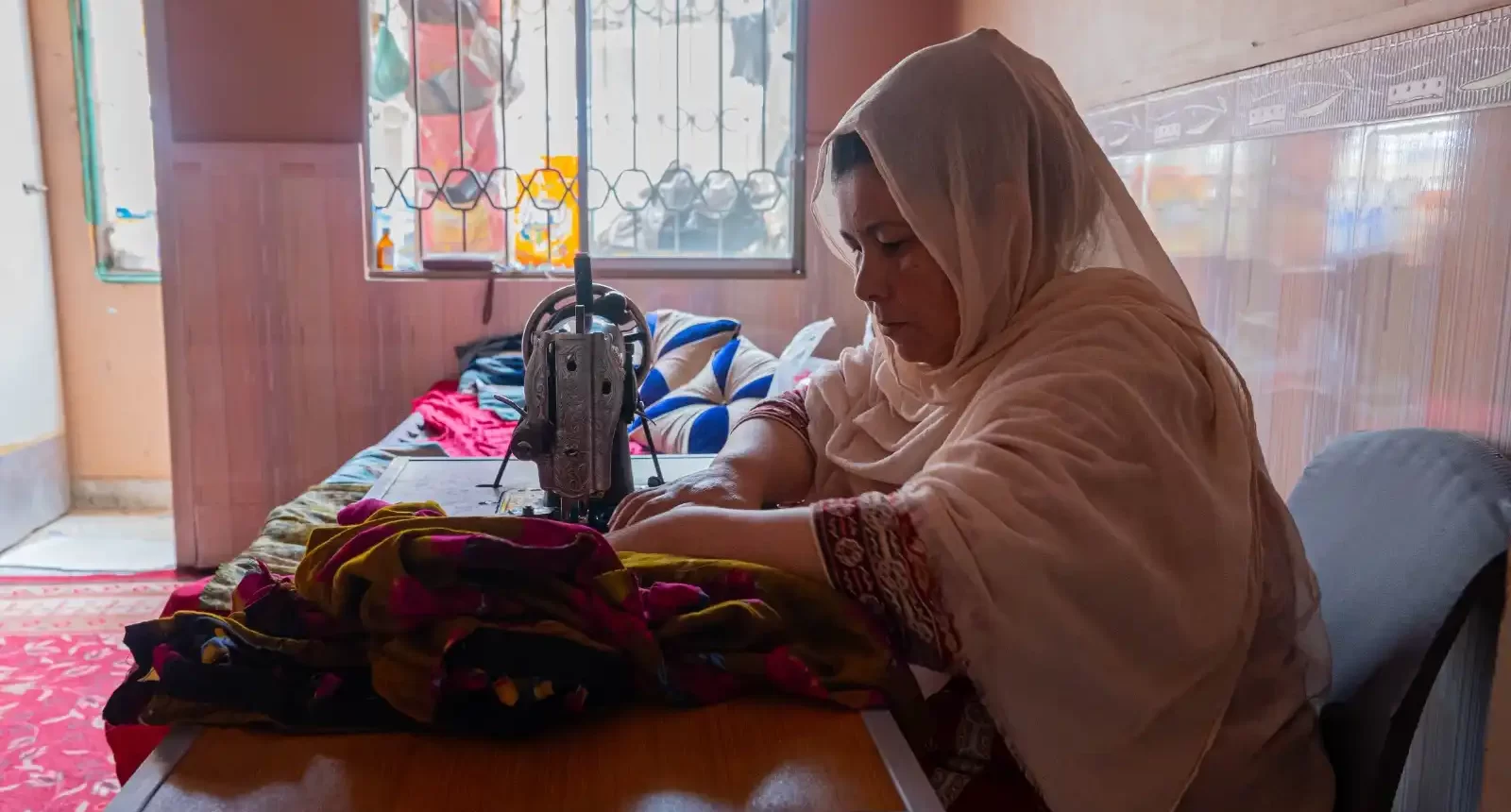 Malika laments the fact that she never expected to live without her sewing machine. For some, their workout is the oxygen they need; for her, it's her sewing machine. Her passion for this skill is truly remarkable.
Malika laments the fact that she never expected to live without her sewing machine. For some, their workout is the oxygen they need; for her, it's her sewing machine. Her passion for this skill is truly remarkable.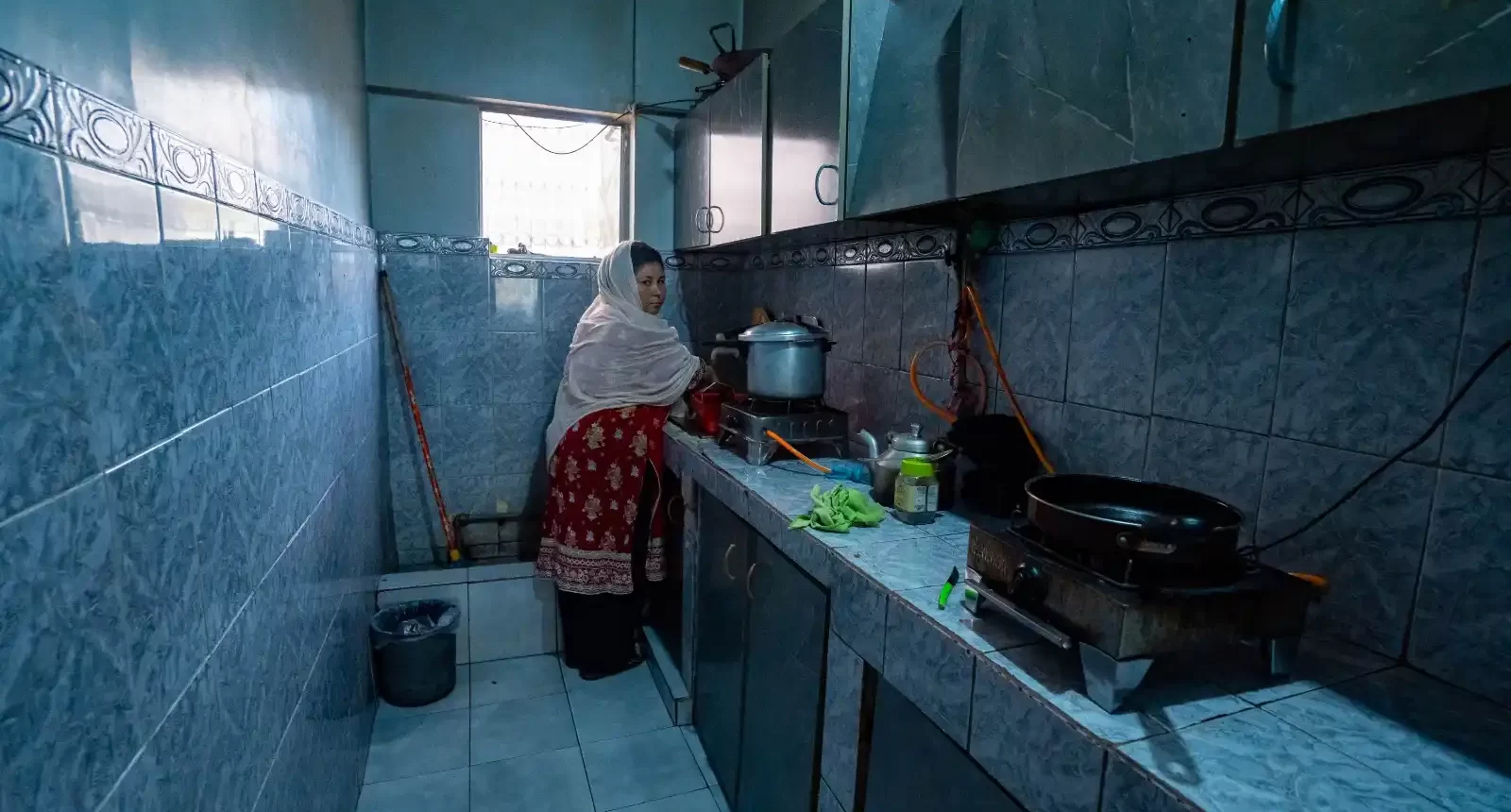 The dire circumstances of the Afghan displaced community are evident in a 1250-square-foot unfurnished apartment that houses an average of 15 Afghans, with five people sharing one room that includes an attached bathroom and a communal kitchen. The total rent for this space is PKR 90,000, equivalent to approximately USD 330, with utilities paid separately. This situation highlights the exploitation faced by the host community.
The dire circumstances of the Afghan displaced community are evident in a 1250-square-foot unfurnished apartment that houses an average of 15 Afghans, with five people sharing one room that includes an attached bathroom and a communal kitchen. The total rent for this space is PKR 90,000, equivalent to approximately USD 330, with utilities paid separately. This situation highlights the exploitation faced by the host community.
The neighbourhood surrounding Garden Jamatkhana in the Jinnah Town Municipal Corporation of District East in Karachi has become a refuge for Afghan displaced communities, primarily from minority and targeted groups, such as the Ismaili Shia community. They sought safety in Pakistan after the Taliban took control of Afghanistan in August 2021, fearing persecution due to their religious beliefs and identities.
During their one-year stay in Kabul under the Taliban government, this community faced numerous threats and challenges, including religious persecution, violence, discrimination, cultural and social restrictions, and marginalization. The Taliban attempted to forcibly convert Shia Ismailis to their version of Islam, barred them from working in markets, and, to some extent, coerced them into marrying their daughters to Taliban members. These circumstances created an atmosphere of fear and insecurity within the community, prompting their displacement and subsequent attempts to settle in Karachi since August 2022.
However, their situation in Karachi remains precarious. Lacking legal titles or identity documents, they live in constant fear of arrests and deportations. This displaced Afghan Shia Ismaili community grapples with several humanitarian challenges, including limited access to shelter, food, and medical care. The absence of proper documentation prevents them from accessing housing, opening bank accounts, obtaining SIM cards, or receiving medical treatment in government facilities, making their daily lives incredibly challenging. Moreover, they often face discrimination and suspicion from local community members, hindering their ability to find employment and access essential services like healthcare and education.
Adding to their challenges is the fact that they share a striking resemblance to the Hazara community, which is also vulnerable and has faced persecution in Afghanistan. This similarity makes them an easy target for discrimination and violence.
In their efforts to find affordable housing, the entire family, consisting of 5 to 6 members, often ends up living in a single room. Apartment-sharing is a common practice, with as many families sharing an apartment as there are rooms. In this overcrowded and resource-constrained environment, they face not only cramped living conditions but also additional challenges related to privacy and hygiene.
Despite these overwhelming challenges, the community members are determined to rebuild their lives and find stability in their host country, Pakistan. The Jamatkhana, a place of worship and community gathering for Ismaili Muslims, has played a crucial role in supporting the displaced community in Karachi. It offers humanitarian assistance, including food distribution, shelter support, medical services with access to healthcare professionals and medical supplies, educational opportunities such as skill development, vocational training, job placements, and psychosocial support to help individuals and families cope with trauma and emotional stress.
This Afghan displaced community, who also resemble the Hazara community, not only fear persecution due to their religious beliefs and identities but also lack a choice to return to Afghanistan. The bridges connecting them to their homeland have been nearly irreparably burned. It is incumbent upon the international community to unite in support of these displaced individuals, advocating for their legal status in host countries and granting them special permits to work and earn a livelihood. Such measures are imperative to break the cycle of abuse, including corruption and security threats from authorities and the local population. By offering them the opportunity will help improve their psychosocial well-being through self-sufficiency.
The plight of this displaced Afghan Shia Ismaili community underscores the urgent need for recognition and support to help them overcome the challenges they face and create a better future for themselves and their families.
